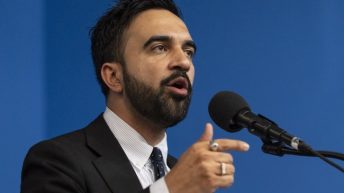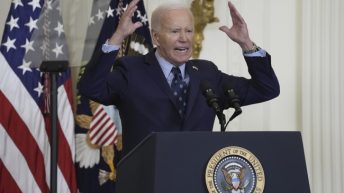Zohran Mamdani has clarified a detail about a family anecdote that came up during his campaign: the woman he referred to as an “aunt” who was allegedly too afraid to wear her hijab on the subway after 9/11 is actually his father’s cousin. The exchange has become part of a larger conversation about his background, narrative accuracy, and the kind of scrutiny New York City voters are applying to candidates. This piece walks through what was said, why it matters politically, and how candidates’ personal stories are weighed in campaigns.
The line at the center of this has been repeated in several campaign contexts: “aunt” he said was too afraid to wear her hijab on the city subway after 9/11. That phrasing became shorthand for a personal, painful moment tied to the city’s post-9/11 climate. Mamdani’s clarification that the woman is his father’s cousin changes nothing about the emotional content, but it does change the precise family link he invoked while talking to voters and the press.
In politics, details matter because voters use them to judge credibility. When a candidate uses family stories, audiences expect basic accuracy, not embellishment. For many voters, especially in New York where personal stories intersect with public policy, that kind of precision signals whether a candidate respects the truth or treats narratives as campaign props.
The clarification raises reasonable questions about vetting and messaging. Campaigns often spin personal histories to be more relatable, but there’s a line between streamlining a story and misrepresenting relationships. Opponents and skeptics will frame this as more than a footnote; they’ll argue it reflects on judgment, consistency, and who a candidate becomes under pressure.
There is also a practical angle about the emotional resonance of post-9/11 anecdotes. The fear that Muslim and visibly observant New Yorkers felt in the months and years after 9/11 is real and well documented. Whether that fear came from a father’s cousin or a direct aunt, the broader climate of suspicion and intimidation did affect many families, and that context is important for policy discussions about safety, religious liberty, and community policing.
But campaigns operate on voter perception as much as on facts. Critics will say the change from “aunt” to “father’s cousin” is evidence of sloppy storytelling. Supporters will argue it is an irrelevant detail that does not erase the experience being described. Either way, the incident highlights how small discrepancies can become focal points in political contests, especially in a diverse and media-rich environment like New York City.
Mamdani’s clarification also invites a look at how media coverage amplifies minor inconsistencies. Reporters and outlets often chase the human element, which is fair, but that chase can magnify mistakes into narratives about character. For Republicans and conservative-leaning observers, this kind of back-and-forth is a reminder to press harder on accuracy and accountability when evaluating candidates who emphasize personal histories.
Voters should consider both the substance of a candidate’s policies and the reliability of their public statements. A clear pattern of loose phrasing would matter more than a one-off correction, but people across the political spectrum take notice when details shift under scrutiny. That’s why campaign teams spend so much time rehearsing messaging—because even small slips can become sustained talking points for opponents.
Finally, this is about trust in leadership. New Yorkers are practical and demanding; they want leaders who communicate truthfully and handle pressure without letting narratives spin out of control. Whether this clarification affects Mamdani’s standing depends on how his campaign responds and whether further inconsistencies appear. For voters, it’s a prompt to look beyond emotional anecdotes to policies and track records that will govern a city of millions.




Add comment